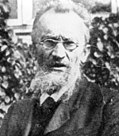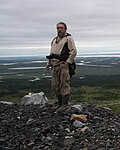
This list of Russian Earth scientists includes the notable geographers, geologists, oceanographers, meteorologists, ecologists and other representatives of Earth sciences from the Russian Federation, the Soviet Union, the Russian Empire and other predecessor states of Russia.






